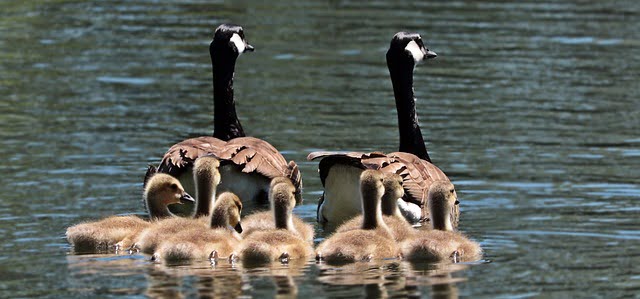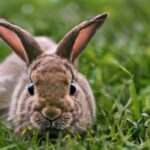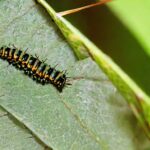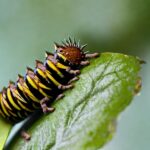
Geese are a common sight in many parts of the world, often seen in flocks flying overhead or grazing in fields and wetlands. These birds are known for their distinctive honking calls and their strong migratory instincts.
But what do geese eat? Understanding their dietary habits is important for understanding their behavior and impact on their environment.
In this article, we will explore whether geese are herbivores, and if so, what types of plants and other vegetative matter they consume.
- Are Geese Herbivores?
- Plants that Geese Eat
- What Do Geese Eat Naturally?
- Geese as Opportunistic Feeders
- Digestive System of Geese
- Final Thoughts
Are Geese Herbivores?
Geese are herbivores, which means they primarily eat plants and other vegetative matter. They are known to consume a wide variety of plant material, including grasses, grains, and aquatic plants.
They are often found in fields, marshes, and other wetland areas where these types of plants are abundant. (Learn about other herbivore birds at Are Birds Herbivores? and Are Birds Herbivores, Omnivores, or Carnivores?)
(Herbivores are animals that eat only plants. You can find examples of them at What Animals are Herbivores List)
Plants that Geese Eat
One of the most common types of plants that geese consume is grass. They have a strong preference for short, young grass, which is high in protein and easy to digest. They will also eat longer, mature grass, but it is not their first choice. Geese will often graze in fields or lawns, where they can easily find grass to eat.
In addition to grass, geese also consume a variety of grains, such as wheat, oats, and barley. They are often found in agricultural areas where these crops are grown, and they can cause damage to the crops by consuming large amounts of them.
Aquatic plants are also a major food source for geese. They will consume a wide variety of aquatic plants, such as duckweed, water lilies, and pondweed. These plants are rich in nutrients and are an important food source for geese, especially during the breeding season when they need extra energy to raise their young.
Geese are also known to consume a variety of fruits and berries, such as apples, berries, and grapes. They will also eat insects and worms, but these make up a small portion of their diet.
What Do Geese Eat Naturally?
Geese are naturally herbivores, which means they primarily eat plants and other vegetative matter. In their natural habitat, they consume a variety of plants such as:
- Grasses: Geese have a strong preference for short, young grass, which is high in protein and easy to digest. They will also eat longer, mature grass, but it is not their first choice. Geese can often be found grazing in fields, meadows, and wetlands where they can easily find grass to eat.
- Aquatic plants: Geese also consume a wide variety of aquatic plants, such as duckweed, water lilies, and pondweed. These plants are rich in nutrients and are an important food source for geese, especially during the breeding season when they need extra energy to raise their young.
- Fruits and Berries: Geese also consume a variety of fruits and berries that grow in the wild such as wild berries, grapes and apples
- Insects and worms: Although geese are primarily herbivores, they will also consume insects and worms, but these make up a small portion of their diet.
Geese are opportunistic feeders, which means they will eat whatever food is available to them. However, in their natural habitat, they primarily consume the plants listed above. Their diet may vary depending on the season and location, but plants will always be the main component of their diet.
In addition to their diet, geese also require a source of clean water to drink and bathe in, as well as a safe place to roost and breed. In their natural habitat, they can find these necessities in wetlands, marshes, and other similar environments.
In summary, geese are naturally herbivores that primarily eat plants and other vegetative matter. In their natural habitat, they consume a variety of grasses, aquatic plants, fruits and berries, and insects and worms, but plants make up the majority of their diet.
They also require a source of clean water, a safe place to roost, and a safe place to breed, which they can find in wetlands, marshes, and other similar environments.
Geese as Opportunistic Feeders
Geese are opportunistic feeders, which means they will eat whatever food is available to them. This adaptability allows them to survive in a wide variety of environments and conditions. They are able to take advantage of different food sources depending on the season and location.
For example, during the breeding season, geese will consume more aquatic plants to provide the extra energy needed to raise their young. In agricultural areas, they will consume grains such as wheat and barley, causing damage to crops. In urban areas, they may consume fruits and berries from ornamental plants, as well as any food scraps they can find.
This ability to adapt to different food sources is also why geese are able to survive in so many different parts of the world. They are not limited to a specific type of habitat or plant, and can thrive in a variety of environments from coastal marshes to suburban lawns.
Additionally, geese are known for their strong migratory instincts, and this ability to adapt to different food sources enables them to survive during their long migration journeys. They can find food sources along the way, as well as adjust their diet to the different regions they travel through.
In conclusion, geese are opportunistic feeders, which means they will eat whatever food is available to them. This adaptability allows them to survive in a wide variety of environments and conditions, and it’s one of the reasons they are able to thrive in so many different parts of the world. It also enables them to survive during their long migration journeys.
What Do Geese Eat in the Water?
Geese are known to consume a variety of aquatic plants and animals when they are in the water.
It’s worth noting that geese are opportunistic feeders, which means they will eat whatever food is available to them. However, aquatic plants and animals make up a small portion of their diet. They will consume them when they are in the water but as they are primarily herbivores, they will go back to consuming plants when they are on land.
Some of the most common types of aquatic plants that geese consume include:
- Duckweed: This small, floating plant is a common food source for geese, especially during the breeding season when they need extra energy to raise their young. Duckweed is high in protein and easy to digest.
- Water Lilies: These large, floating plants provide a variety of nutrients for geese and are often found in wetlands and marshes. Geese will consume the leaves, stems, and flowers of water lilies.
- Pondweed: This type of aquatic plant is found in still or slow-moving water and provides a variety of nutrients for geese. They will consume the leaves, stems, and roots of pondweed.
In addition to aquatic plants, geese also consume a variety of aquatic animals, such as:
- Mollusks: Geese will consume a variety of mollusks, such as clams, mussels, and snails, which they can find in the mud or sand at the bottom of the water.
- Aquatic Insects: Geese will also consume a variety of aquatic insects, such as dragonflies, damselflies, and water beetles, which they can find on or near the surface of the water.
- Fish: Geese will also consume small fish, such as minnows and sticklebacks, which they can catch in the water.
In conclusion, geese consume a variety of aquatic plants and animals when they are in the water. They will consume aquatic plants such as duckweed, water lilies, and pondweed, as well as aquatic animals such as mollusks, aquatic insects, and small fish. However, this is a small portion of their diet and geese will primarily consume plants when they are on land.
Digestive System of Geese
Geese have a specialized digestive system that is adapted to their herbivorous diet and enables them to efficiently process large amounts of plant material. This system includes several unique structures and adaptations that aid in breaking down food and absorbing nutrients.
One important part of a goose’s digestive system is the crop, which is an enlarged part of the esophagus where food is stored and softened before it is passed on to the rest of the digestive tract. The crop allows geese to swallow large quantities of food at once and then digest it later, which is useful when food is scarce or when they need to store food for long flights.
Another important part of a goose’s digestive system is the gizzard. The gizzard is a muscular organ that grinds up food with the help of small stones and grit that geese swallow. The gizzard’s muscular walls grind the food against the ingested stones, which helps to break down the plant material and extract nutrients.
Their digestive system also includes other organs such as the stomach, small intestine, and large intestine, which aid in breaking down food and absorbing nutrients. The stomach secretes enzymes and acid that help to break down food, while the small intestine absorbs nutrients and the large intestine eliminates waste.
In addition to these specialized structures, geese also have a relatively simple gut, which is beneficial for digesting plant material. This simple gut, along with the crop and gizzard, allows geese to extract as much nutrition as possible from the plants they consume.
In conclusion, geese have a specialized digestive system that is adapted to their herbivorous diet. This system includes the crop, gizzard, stomach, small intestine, and large intestine which work together to break down food and absorb nutrients. This specialized digestive system enables geese to efficiently process large amounts of plant material, and extract the most nutrients from the plants they consume.
Final Thoughts
In conclusion, geese are herbivores that primarily eat plants and other vegetative matter. They consume a wide variety of plant material, including grasses, grains, and aquatic plants. They are opportunistic feeders that can adapt to a wide variety of environments and food sources.
Their specialized digestive system allows them to extract the most nutrients from the plants they consume, which helps them to survive in many different parts of the world.
Lance has been passionate about the plant-based diet and we have been following a whole food plant-based diet for over 5 years. We focus on health, natural healing, weight management, animal rights, and the health of the planet and environment by focusing on whole plant-based foods and sustainable practices.
Learn more at the About Me page and follow on social media at the links below.





